André is a health reporter and columnist at the Globe and Mail, where he has been a staff writer since 1987.
What are the biggest changes in health care while you have been covering it?
A lot more attention is being paid to health rather than medicine. We can actually say things like “social determinants of health” in the newspaper without editors being puzzled.
I think the anger among health professionals, mostly physicians, is a newish thing. I think governments essentially take turns picking on different parts of the system. It is the doctors’ turn. It will be the hospitals’ turn next. I think there’s less tolerance for being picked on now. We know there’s a lot of unhealthiness among physicians. The mental health issues, the suicides. I think there’s kind of a perfect storm of just being pissed off, for lack of a better word. And a lot of it is justified.
I really believe that doctors should have a negotiated contract. I don’t believe in contracts being imposed. That being said, I think the government should be tough. I think doctors in general are well taken care of. There’s a real lack of transparency about how much they are paid. We can debate endlessly whether it’s fair or not, but if we don’t know, it just becomes a rhetorical argument.
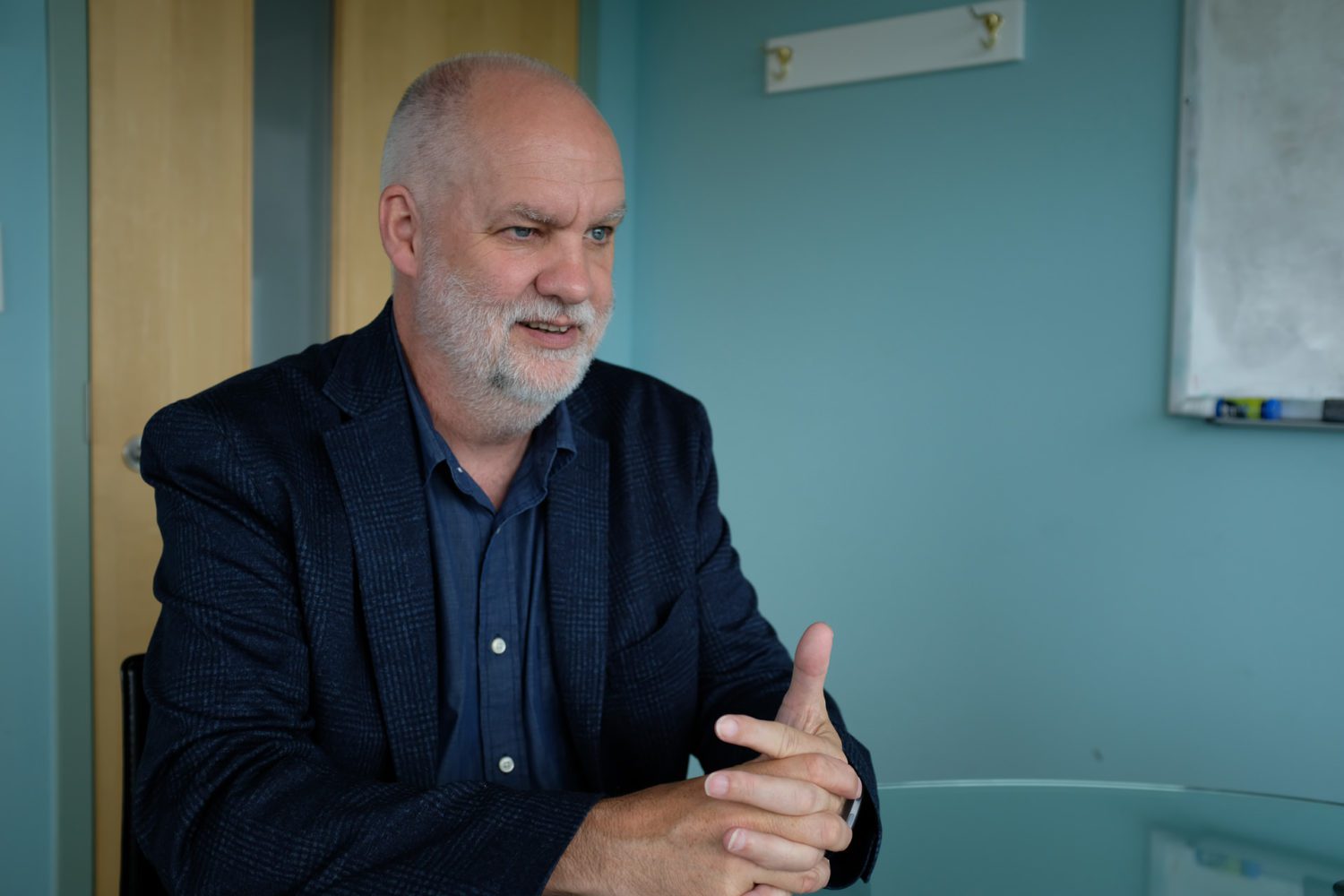
There is a lack of data on quality that results in a lack of choice for patients. Not that you have much choice, but if you did, how do you choose the right surgeon? You have no idea who is good and who is bad. People in the system know that stuff, but it’s a big secret from the public. Hospital report cards for the most part are useless. They ask questions that are so vague that the hospitals are almost always going to get a good ranking.
Governments essentially take turns picking on different parts of the system. It’s the doctors’ turn.
I call the health system profoundly undemocratic. A lot of that comes from our history. The foundation of our health system is mostly the Catholic Church and other religious institutions. So I think it has inculcated this notion that we’re a charitable system. We’re giving you this gift of health care and you should be thankful for it. We’re not going to spend on “unnecessary” stuff like paint and chairs. It’s a very austere system for the large part, although that’s changing a little bit now.
Our first publicly funded health insurance programs were for the military. The attitude was, “You gave a service as a soldier, so we’re giving you this in return. Be thankful for it and do what you’re told.” Our health care system is often described as paternalistic and I think that paternalism comes from the military structure of our hospitals and institutions.
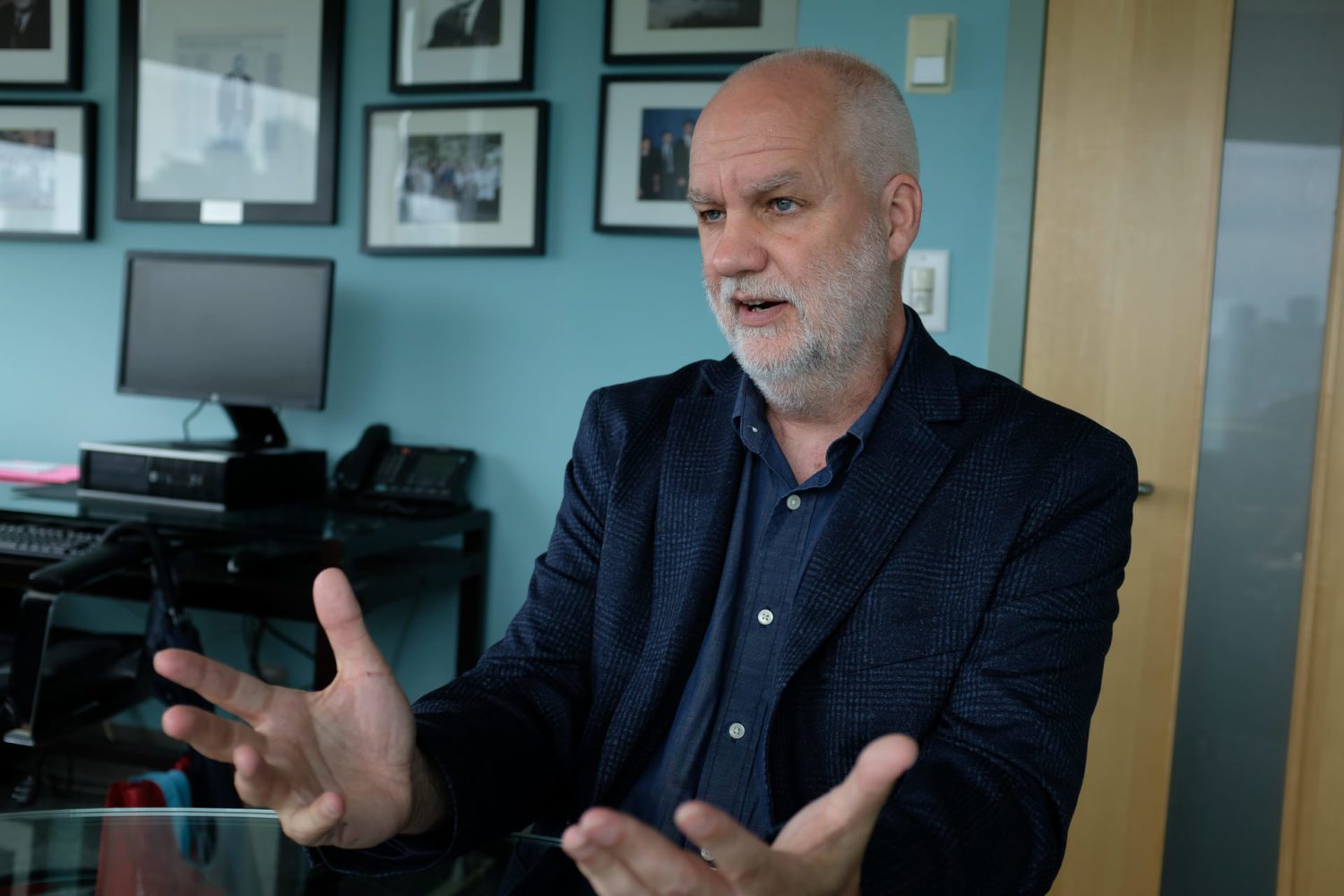
How has social media changed how you work?
People say I spend an obsessive amount of time on Twitter, which is true. But I used to spend an obsessive amount of time reading my 10 newspapers every morning. To me, it’s just a shift in how I use the media. The upside is I can read much more specialized health stuff. The downside is I don’t leaf through the paper and read an interesting story on Afghanistan. My world has become smaller in some ways but bigger in others. Social media allows me to share what I read. Some people appreciate that and some think I share too much.
You get a lot of accolades but a lot of vitriol too. How do you deal with that?
You have to have a thick skin. I accept that it goes with the territory. Some of it gets to you after a while. I never read the online comments. That’s a golden rule. If people write me personally I try to respond 100 percent of the time regardless of what they say. Even if it’s, “Thanks, but I disagree with you.”
Being insulted is not the thing that bothers me the most. It’s when people say, “I hate that you said A,” and I didn’t say anything remotely close to A. I said B. That bugs me, but you can’t do anything about that. I used to engage more on Twitter. I learned the hard way it’s not a good medium to do that. You can have a thoughtful discussion but then suddenly it goes off the rails when person three or four gets in. Twitter discussions tend to end up badly, unfortunately.
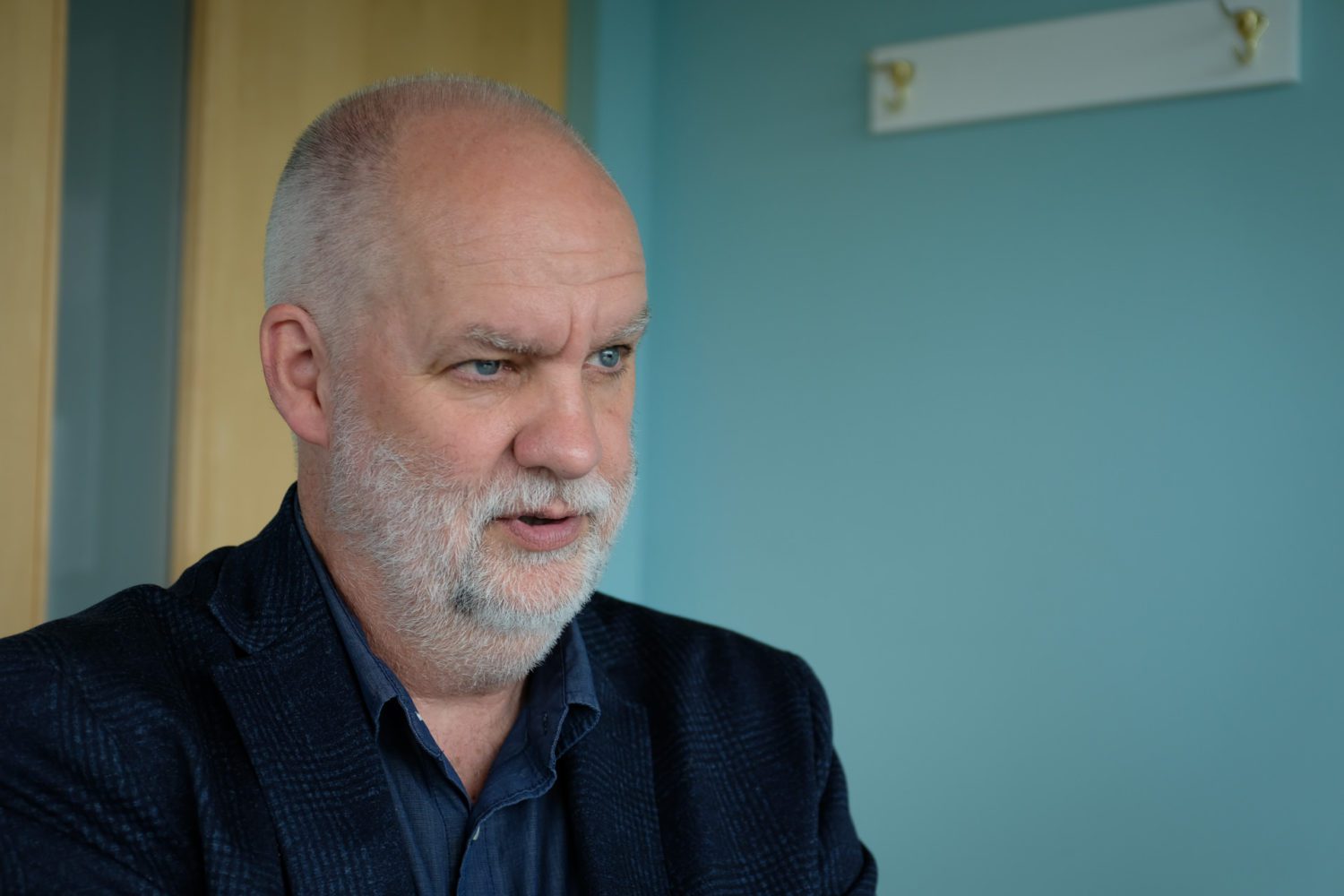
Why do so many people read and follow you?
I think I do something that nobody else does. I write about policy. I write about “health is politics” as opposed to “health is medicine.” I kind of stumbled into that way of thinking. The arc of my career is AIDS. That’s how I got interested in health. I wrote my first story about AIDS before it was AIDS—in 1981, on a student newspaper writing about GRID (gay-related immune deficiency). To me, it wasn’t a medical issue because there was no treatment. It was a political issue. An issue of bathhouses being raided and gay men being discriminated against. That shaped how I look at health care. What’s the impact on people and society rather than what’s the impact on a germ?
AIDS forced us to talk to people.
I tell the story of the Globe’s medical reporter at the time saying to me, “Why would you talk to patients? What do they know?” She wasn’t an evil person—that was just the mentality at the time. She read her medical journals, she talked to the experts and that was the end of the story. A patient should be thankful for that information. But AIDS changed that. AIDS forced us to talk to people.
One day a guy called the newsroom and said his partner was in hospital and was being badly treated. I went to see him. It was easier to get into hospitals in those days and do whatever you wanted. I went into this guy’s room, introduced myself and shook his hand. And he burst into tears. He said nobody had touched him for three days. Over his bed there’s this poster saying, “Danger”—I forget exactly the wording, but it was in pink no less (very subtle!). Essentially warning people that this is a gay man. And he wasn’t even there for treatment of AIDS, he was there for something totally unrelated. Just the fact that he was openly gay, which was unusual at the time, brought on this whole wave of mistreatment. They wouldn’t bring his food in the room. His food trays were piled at the door. They wouldn’t change the sheets. It was really awful. So I wrote a story about that. The next day—bang! The hospital does a press conference—we’re changing this, we didn’t know, this is unacceptable… It is empowering to realize you can make a change.
Both of my parents had chronic illnesses. My father had dementia for many years and my mom had COPD. She was in and out of the system a lot and I always say that the only health education I have is caring from afar for elderly parents who were in the system every day.
My mother was, how should I put it? Very curt. She was a very no-nonsense person. She didn’t like going for care. She said to me that she turned off her hearing aid when she went to her doctor. “He is not going to say anything that is useful anyhow.”
I remember going home one weekend and my mother was bruised all over. So I went to the medicine cabinet and started being Dr. Google. I found some really flagrant contraindications and four different blood thinners prescribed by four doctors. A whole bunch of stuff that shouldn’t happen.
The next day she had a medical appointment and, worst-case scenario for a doctor, the reporter shows up with his mom. I lined the 14 pill bottles up on his desk and said, “I think we will leave here with two.” And he was like, “Oh, it’s not possible.” And I said, “I have got all day. I am on holidays.” My mother was really angry. She said, “He is going to fire me and I am not going to have a doctor.” And I am like, “You paid for his summer cottage with your visits. Not to worry.” Long story short, we left there with three or four pills. And my mother felt amazingly better the next day. She was shocked.
I think doctors in general are well taken care of. There’s a real lack of transparency about how much they are paid.
I started thinking, “Why doesn’t everybody search old people’s cabinets?” I started poking around and I learned that in fact there was a pilot project about that in Nova Scotia. They sent pharmacists into the home and the results were dramatic. Hospital admissions dropped. So I wrote a little column about it. And then, of course, the pilot project lost its funding and we went back to drugging seniors to death. My mother’s experience inspired a lot of the stuff I wrote about “drugging seniors to death.” I don’t know how many times I have written that column.
You give a lot of talks. Which ones do you enjoy the most?
The talks that are most memorable for me usually involve a patient group. Talks to parents of kids with schizophrenia, or to 60-year-old parents of kids with Down’s syndrome. Really small groups. I meet the people after and some of them have become lifelong friends.
One of my favourite stories I ever did was about this group called PLAN (Planned Lifetime Advocacy Network). They were a group of parents who had kids with Down syndrome. They were really dedicated to their children and had them at home their whole lives. They realized that they were getting elderly and, much to their horror, thought that their children would probably end up in an institution after they died. So they created this model which has now been copied around the world. They essentially made their child a corporation and the corporation appointed a board of directors. People on the board could be their neighbour or their kindergarten teacher, and after the parents die—and even before they die—these people take over from the parents and manage their lives. “Here’s your income. How do you want to spend it?” I wrote about this kid—well, the kid was in his 40s at the time—he liked horses. So they found him a job working at a stable. He liked the Vancouver Canucks. “Well, you have enough money to buy tickets for 10 games a year. Which games do you want?” This is what the corporation does. They have to tell him, like a parent sometimes, “That’s not doable.” To me it was one of the most touching stories I have ever done.
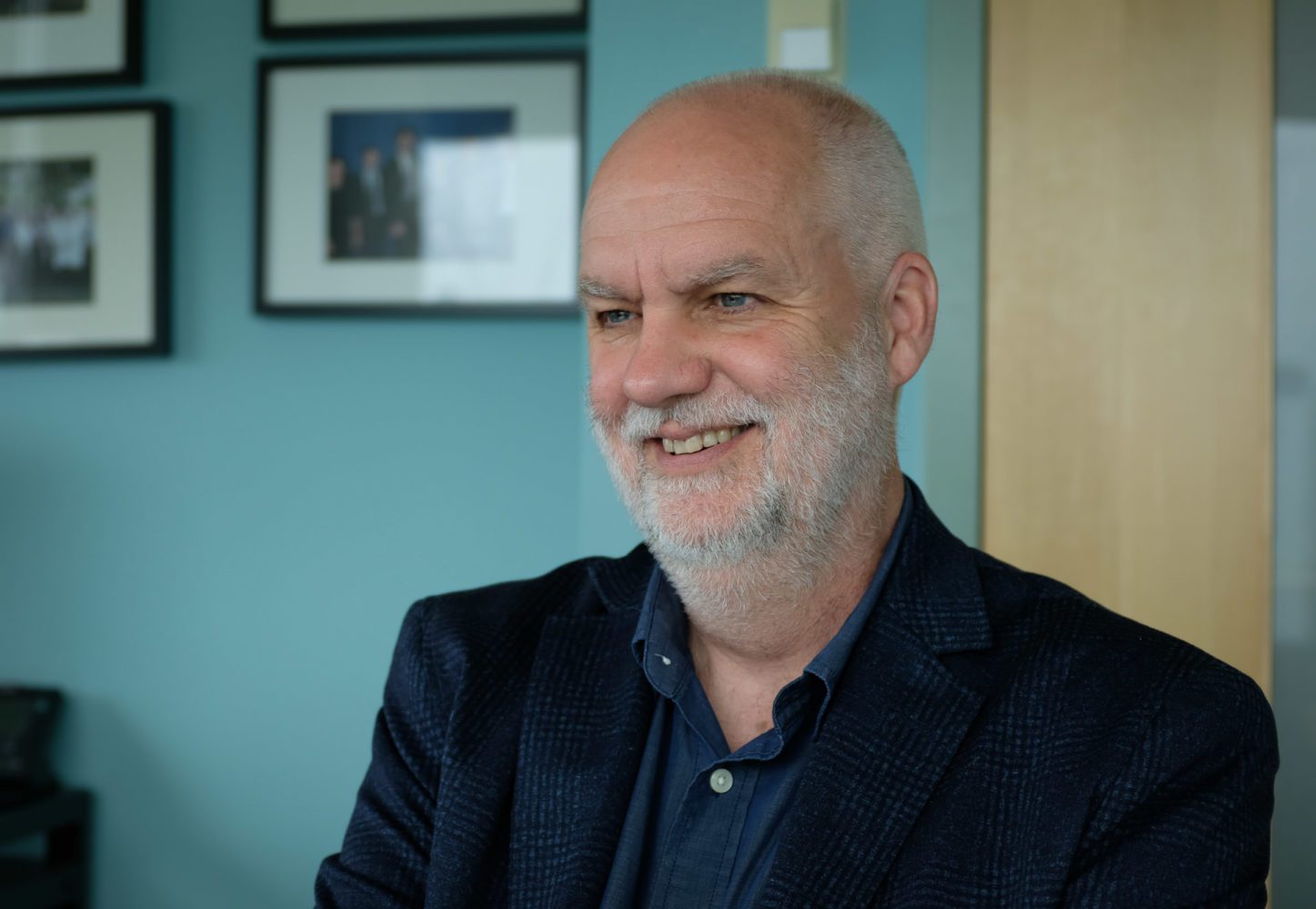

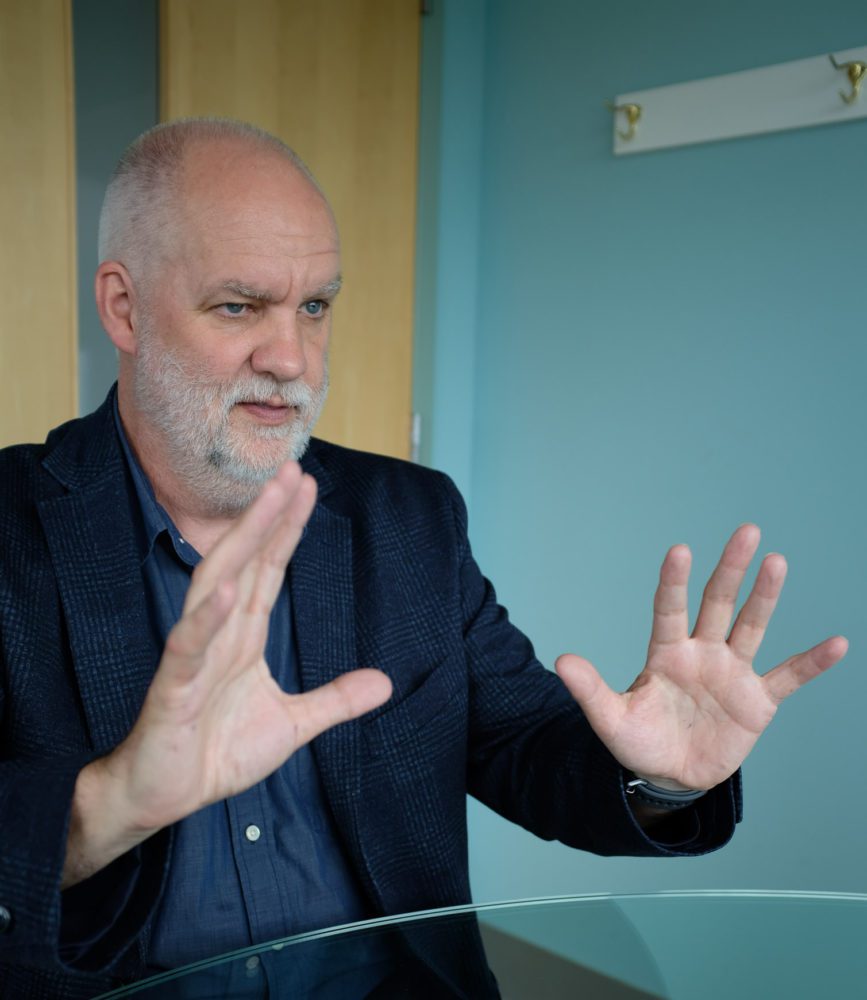

The comments section is closed.